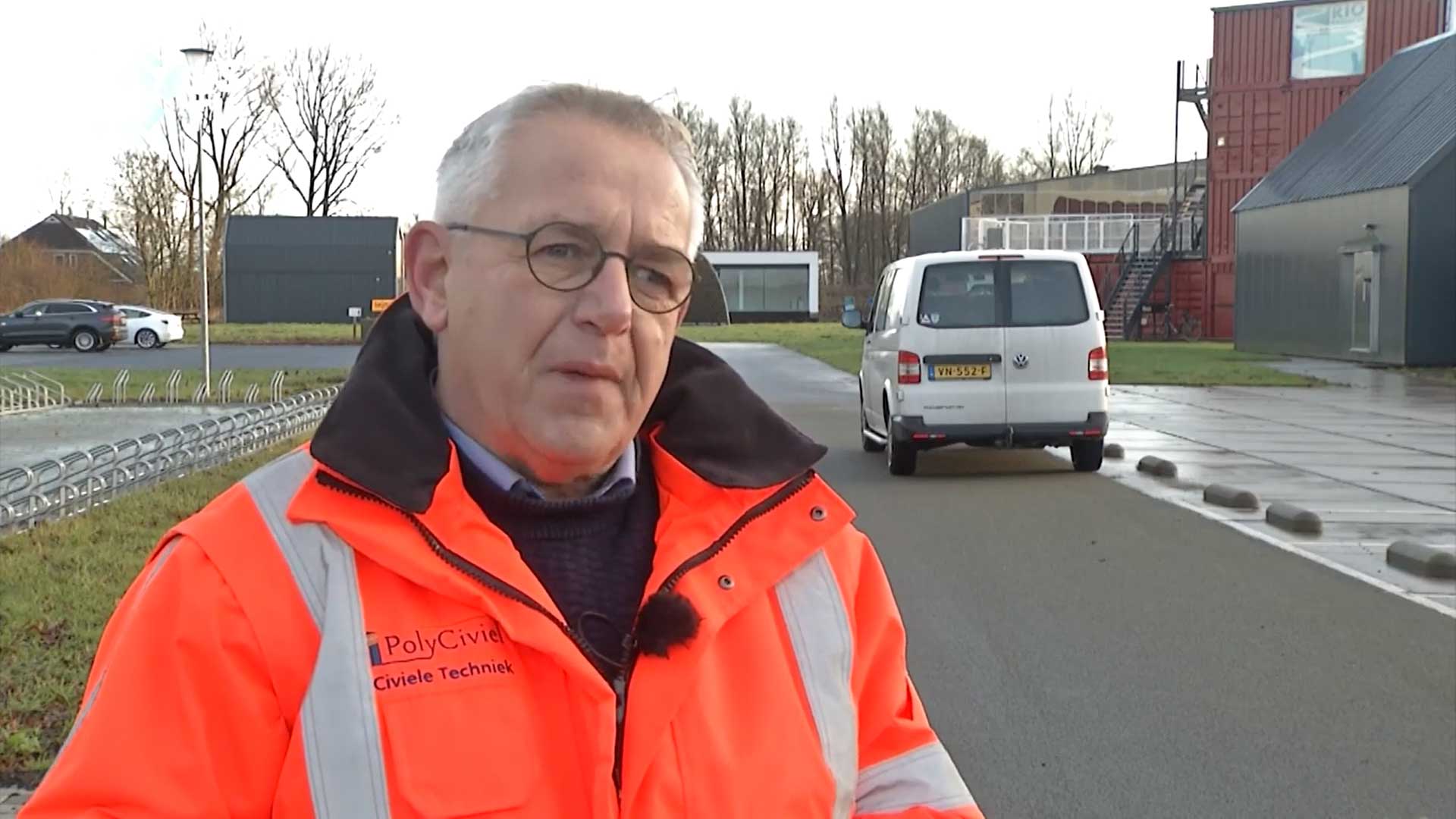They developed asphalt with olivine, a volcanic rock that occurs frequently in the earth’s crust. In collaboration with Ohpen Ingenieurs and Oosterhof-Holman, a 60-metre-long road was laid last year in the Climate Adaptation Living Lab on the Zernike Campus in Groningen, ‘eating’ a total of more than 20 tonnes of CO2.
It is known that olivine breaks down CO2 under natural conditions, but this happens very slowly. When the stone is pulverised, the process suddenly accelerates. Piet Zijlstra of PolyCiviel: “When it rains and the road surface gets wet, the magnesium silicate in the stone starts a chemical reaction and magnesium bicarbonate is formed, capturing CO2 from the air. One kilo of this material absorbs about 1.25 kilos of CO2.”
The asphalt has already been introduced to the market. Zijlstra says he is receiving many phone calls by interested officials from municipalities and provinces.
Theme: Sustainable Road Construction 2021
- Asphalt is getting ever greener
- Low temperature asphalt made with linseed oil
- Cellulose as a green asphalt additive
- Asphalt with olivine eats tonnes of CO2
These articles were created in collaboration with Chemport Europe.
Image: CampusTV/YouTube




